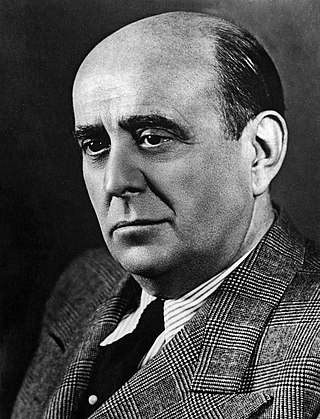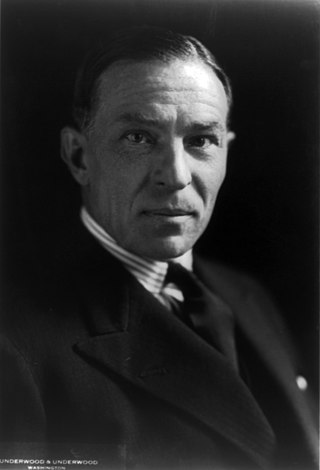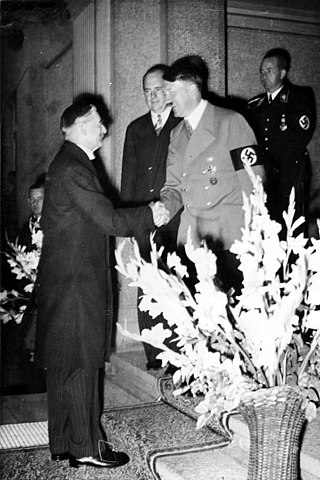
The Sudetenland is the historical German name for the northern, southern, and western areas of former Czechoslovakia which were inhabited primarily by Sudeten Germans. These German speakers had predominated in the border districts of Bohemia, Moravia, and Czech Silesia since the Middle Ages. Since the 9th century the Sudetenland had been an integral part of the Czech state both geographically and politically.

The Munich Agreement was an agreement reached in Munich on 30 September 1938, by Nazi Germany, Great Britain, the French Republic, and Fascist Italy. The agreement provided for the German annexation of part of Czechoslovakia called the Sudetenland, where more than three million people, mainly ethnic Germans, lived. The pact is also known in some areas as the Munich Betrayal, because of a previous 1924 alliance agreement and a 1925 military pact between France and the Czechoslovak Republic.

Jan Garrigue Masaryk was a Czech diplomat and politician who served as the Foreign Minister of Czechoslovakia from 1940 to 1948. American journalist John Gunther described Masaryk as "a brave, honest, turbulent, and impulsive man".
Fall Grün was a pre-World War II plan for the invasion of Czechoslovakia by Nazi Germany. Although some preliminary steps were taken to destabilise Czechoslovakia, the plan was never fully realised since Nazi Germany achieved its objective by diplomatic means at the Munich Conference in September 1938, followed by the unopposed military occupation of Bohemia and Moravia and the creation of a nominally independent Slovakia, in March 1939.
The First Czechoslovak Republic emerged from the collapse of the Austro-Hungarian Empire in October 1918. The new state consisted mostly of territories inhabited by Czechs and Slovaks, but also included areas containing majority populations of other nationalities, particularly Germans (22.95 %), who accounted for more citizens than the state's second state nation of the Slovaks, Hungarians (5.47 %) and Ruthenians (3.39 %). The new state comprised the total of Bohemia whose borders did not coincide with the language border between German and Czech. Despite initially developing effective representative institutions alongside a successful economy, the deteriorating international economic situation in the 1930s gave rise to growing ethnic tensions. The dispute between the Czech and German populations, fanned by the rise of Nazism in neighbouring Germany, resulted in the loss of territory under the terms of the Munich Agreement and subsequent events in the autumn of 1938, bringing about the end of the First Republic.

The military occupation of Czechoslovakia by Nazi Germany began with the German annexation of the Sudetenland in 1938, continued with the creation of the Protectorate of Bohemia and Moravia, and by the end of 1944 extended to all parts of Czechoslovakia.

Konrad Ernst Eduard Henlein was a Sudeten German politician in Czechoslovakia before World War II. After Germany invaded Czechoslovakia he became the Gauleiter and Reichsstatthalter of Reichsgau Sudetenland under the occupation of Nazi Germany.

Robert Gilbert Vansittart, 1st Baron Vansittart,, known as Sir Robert Vansittart between 1929 and 1941, was a senior British diplomat in the period before and during the Second World War. He was Principal Private Secretary to the Prime Minister from 1928 to 1930 and Permanent Under-Secretary at the Foreign Office from 1930 to 1938 and later served as Chief Diplomatic Adviser to the British Government. He is best remembered for his opposition to appeasement and his strong stance against Germany both during and after the Second World War. Vansittart was also a published poet, novelist and playwright.

The Sudeten German Party was created by Konrad Henlein under the name Sudetendeutsche Heimatfront on 1 October 1933, some months after the First Czechoslovak Republic had outlawed the German National Socialist Workers' Party. In April 1935, the party was renamed Sudetendeutsche Partei following a mandatory demand of the Czechoslovak government. The name was officially changed to Sudeten German and Carpathian German Party in November 1935.

The Sudetendeutsches Freikorps (SFK) was a paramilitary organization founded on 17 September 1938 in Germany on direct order of Adolf Hitler. The organization was composed mainly of ethnic German citizens of Czechoslovakia with pro-Nazi sympathies who were sheltered, trained and equipped by the German army and who conducted cross-border terrorist operations into Czechoslovak territory from 1938 to 1939. They played an important role in Hitler's successful effort to occupy Czechoslovakia and annex the region known as Sudetenland into the Third Reich under Nazi Germany.

German Bohemians, later known as Sudeten Germans, were ethnic Germans living in the Czech lands of the Bohemian Crown, which later became an integral part of Czechoslovakia. Before 1945, over three million German Bohemians constituted about 23% of the population of the whole country and about 29.5% of the population of Bohemia and Moravia. Ethnic Germans migrated into the Kingdom of Bohemia, an electoral territory of the Holy Roman Empire, from the 11th century, mostly in the border regions of what was later called the "Sudetenland", which was named after the Sudeten Mountains.

Zdeněk Fierlinger was a Czechoslovak diplomat and politician. He served as the prime minister of Czechoslovakia from 1944 to 1946, first in the London-based Czechoslovak government-in-exile and then in liberated Czechoslovakia. Long close to the Soviet Union, he has his name often associated with the merger of his Czech Social Democratic Party with the Czechoslovak Communist Party after the communist coup in 1948.

Edvard Beneš was a Czech politician and statesman who served as the president of Czechoslovakia from 1935 to 1938, and again from 1939 to 1948. During the first six years of his second stint, he led the Czechoslovak government-in-exile during World War II.

Vojtěch Mastný was a Czechoslovak diplomat.

The Godesberg Memorandum is a document issued by Adolf Hitler in the early hours of 24 September 1938 concerning the Sudetenland and amounting to an ultimatum addressed to the government of Czechoslovakia.
A Total and Unmitigated Defeat was a speech by Winston Churchill in the House of Commons at Westminster on Wednesday, 5 October 1938, the third day of the Munich Agreement debate. Signed five days earlier by Prime Minister Neville Chamberlain, the agreement met the demands of Nazi Germany in respect of the Czechoslovak region of Sudetenland.
The Runciman Mission to Czechoslovakia was an initiative of the British government initiative that was aimed at resolving an international crisis threatening to lead to war in Europe in the summer of 1938. The Mission, headed by a former British cabinet minister Lord Runciman, was sent to mediate in a dispute between the Government of Czechoslovakia and the Sudeten German Party (SdP), representing the country's mostly-radicalised ethnic German minority. The British mediators were active on the ground in Czechoslovakia during the late summer and issued their report shortly before the Munich Conference in September.
Sir Basil Cochrane Newton was a British diplomat who was ambassador to Czechoslovakia and Iraq.
The Carlsbad Programme was an eight-point series of demands, addressed to the government of Czechoslovakia, issued by Konrad Henlein, the leader of the Sudeten German Party (SdP), at a party gathering in Carlsbad on 24 April 1938.The programme demanded full autonomy for the mainly German-inhabited areas of Czechoslovakia, known as the Sudetenland. Under pressure from its allies, Britain and France, the Czechoslovak government reluctantly accepted the demands. But the SdP, instructed by Nazi Germany not to reach a settlement with the Czechoslovak authorities, broke off negotiations, thus precipitating the Munich crisis.

Igor Lukes is a professor of history at Boston University, who focuses on central European history since World War I. He is also an Honorary Consul General of the Czech Republic.














